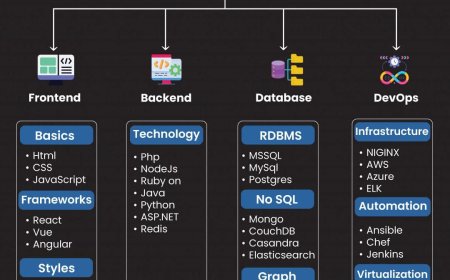Penetration Testing for Data Centers and Hosting Providers in Malaysia: A Vital Security Measure
Contact i3Matrix for penetration testing in Malaysia to protect your network. We offer web application penetration testing to help you stay secure!

If youre managing a data center or hosting provider in Malaysia, youve probably heard the termpenetration testing toassed around. But what exactly does it mean, and why is it so critical for your business?
Well, heres the truth: as the digital landscape evolves, so do the tactics of cybercriminals. For businesses like data centers and hosting providers that house sensitive information, being proactive about cybersecurity is no longer an option; its a necessity.
Penetration testing in Malaysia, also known as ethical hacking, is one of the most powerful ways to identify vulnerabilities in your systems before the bad guys do. But how do you know if your infrastructure is truly secure? Lets take a deep dive into why Penetration testing in Malaysia is essential for data centers and hosting providers in Malaysia.
The Growing Threat to Data Centers and Hosting Providers
Data centers and hosting providers are the backbone of the digital economy. Whether youre providing cloud storage, web hosting, or data management services, you store critical data for businesses, governments, and individuals. Cyberattacks targeting your infrastructure can result in devastating financial loss, data breaches, and a reputation disaster that might take years to repair.
The recent rise in ransomware attacks, DDoS threats, and insider threats highlight just how vulnerable these crucial entities are. And when attackers get access to your infrastructure, the consequences can be catastrophic. But how can you be sure that your data center or hosting provider is prepared for such threats?
Thats where Penetration testing in Malaysia comes in.
What Is Penetration testing in Malaysia and Why Do You Need It?
In simple terms, Penetration testing in Malaysia is when a security expert attempts to hack into your systems to find weaknesses and vulnerabilities before a real hacker does. This can include everything from testing your firewalls, encryption protocols, and access control systems to phishing attempts and testing physical security.
But why does it matter? Let me ask you this: how confident are you that your security measures would stop a hacker? Sure, your firewalls might be strong, and your team may follow security protocols, but are they actually being followed to the letter? Are there any blind spots in your systems? Penetration testing in Malaysia helps answer those questions.
Here are just a few reasons why Penetration testing in Malaysia is so important:
-
Proactively identify vulnerabilities before they are exploited.
-
Stay ahead of hackers by understanding their methods and tactics.
-
Meet regulatory compliance standards that may require regular security assessments.
-
Improve your reputation by proving to clients that you're serious about data security.
-
Prevent costly breaches that can damage your business financially and reputationally.
Types of Penetration testing in Malaysia You Should Consider
Penetration testing in Malaysia isnt a one-size-fits-all approach. There are various types that focus on different areas of your infrastructure, each offering unique insights into potential risks.
Lets break down the most common types that data centers and hosting providers should consider:
1. External Penetration Testing
External testing focuses on vulnerabilities that are accessible from the internet. Think about it: hackers dont need to be physically inside your data center to attack. They can exploit your web servers, APIs, or DNS servers to gain unauthorized access. This type of testing mimics what a hacker might do if they were trying to infiltrate your system from the outside.
It helps you understand:
-
Whether your external defensessuch as firewalls and intrusion detection systemsare strong enough.
-
If your public-facing services (websites, portals, etc.) are vulnerable to attack.
2. Internal Penetration Testing
While external threats are a big concern, insider threats are often just as dangerous. Employees, contractors, or even guests who have access to your infrastructure can potentially exploit weaknesses if theyre not properly managed. Internal penetration testing simulates an insider attack to identify any vulnerabilities that might not be visible from an external perspective.
This test helps you assess:
-
How easy it would be for someone with limited access to escalate their privileges.
-
Whether you have proper access control measures in place.
-
If there are any vulnerabilities in your internal network that could be exploited.
3. Web Application Penetration Testing
If youre providing hosting for websites or web applications, this ones essential. Web apps are common targets for cybercriminals. Even the smallest security flaw in your web apps can be a backdoor for hackers to exploit. Web application penetration testing focuses on identifying vulnerabilities in things like SQL injection, Cross-Site Scripting (XSS), and Cross-Site Request Forgery (CSRF).
This type of test helps you:
-
Secure user-facing applications and prevent unauthorized access.
-
Identify authentication flaws, such as weak password policies.
-
Ensure that your payment systems and other sensitive data are protected.
4. Wireless Network Penetration Testing
Data centers and hosting providers often have complex wireless networks, especially when they are also providing services for cloud hosting or hybrid systems. If these networks arent secure, hackers can easily access sensitive data or cause disruption to operations.
A wireless penetration test simulates an attack on your Wi-Fi networks, looking for flaws like:
-
Weak encryption or open Wi-Fi connections.
-
Misconfigured routers and access points.
-
Potential entry points for man-in-the-middle attacks.
5. Physical Penetration Testing
You might not think of physical access as a big risk, but for data centers, its a huge concern. If someone can physically get into your facility, they could potentially steal devices, install malware, or bypass your digital security. Physical penetration testing helps identify whether your physical security protocols are strong enough.
It tests:
-
Access controls like biometric scanners, security guards, and keycards.
-
Whether someone can physically tamper with servers or hardware.
-
How effective your surveillance systems are in detecting unauthorized access.
Penetration Testing Tools You Should Be Using
Of course, conducting penetration tests requires the right tools. While you could hire an expert, its helpful to understand some of the most effective penetration testing tools on the market. Here are a few popular ones that are commonly used in the industry:
-
Nmap Great for network scanning and vulnerability discovery.
-
Metasploit Perfect for simulating exploits and testing system weaknesses.
-
Wireshark A network analyzer that helps monitor real-time traffic for any unusual behavior.
-
Burp Suite Ideal for web application penetration testing and identifying vulnerabilities in websites.
-
Kali Linux A suite of tools thats a go-to for ethical hackers.
These tools are only effective if used correctly, so its best to either hire skilled penetration testers or enroll your in-house security team in courses that teach these methods.
The Compliance Factor: Penetration Testing for Industry Regulations
If your data center or hosting service is subject to any industry regulations, such as ISO/IEC 27001 or GDPR, penetration testing can help ensure compliance. Many of these frameworks require organizations to conduct regular security assessments, and penetration testing is a key component of this.
By incorporating penetration tests into your compliance strategy, you not only mitigate risks but also demonstrate to regulators, partners, and customers that you take data security seriously.
The Bottom Line: Why Penetration Testing Is Non-Negotiable
As a data center or hosting provider in Malaysia, you are entrusted with sensitive information. The reality is, cybersecurity threats are evolving rapidly, and attackers are becoming increasingly sophisticated. You cant afford to be complacent.
Penetration testing is a powerful tool to keep your systems safe, prevent breaches, and protect your business from the consequences of a cyberattack. Whether youre testing external, internal, or physical vulnerabilities, penetration testing gives you the confidence that you are prepared for whatever comes your way.
So, dont wait until its too lateschedule your penetration test today, and make sure your infrastructure is secure, resilient, and ready for the future. Your clientsand your businesswill thank you.






































